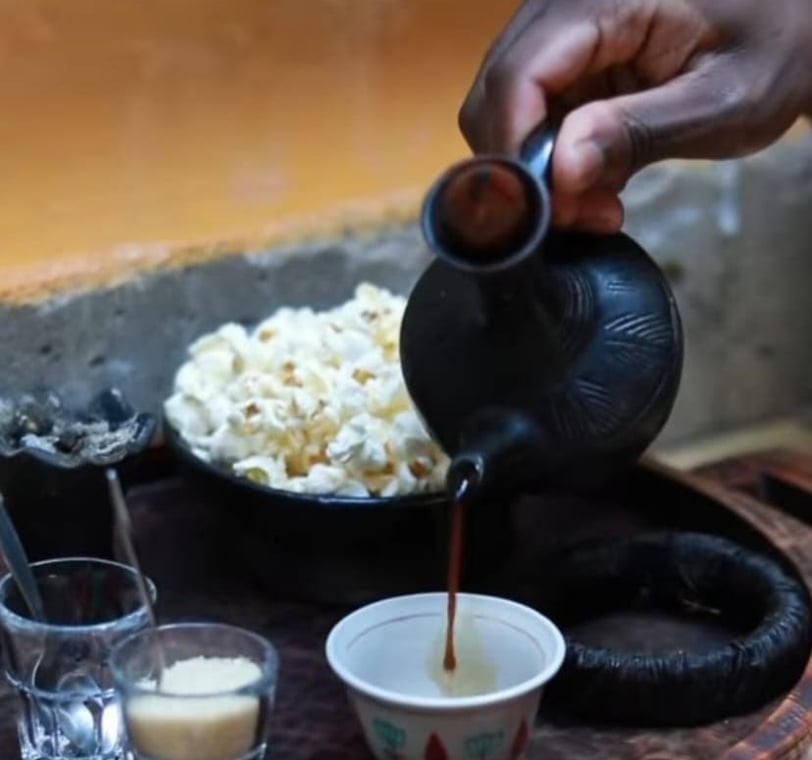Exploring Ethiopian and Eritrean Coffee Ceremonies
Coffee ceremonies are a cornerstone of social and cultural life in Ethiopia and Eritrea. These ceremonies are much more than a simple brewing process; they are a deeply rooted ritual that symbolises hospitality, respect, and togetherness.


History and Significance
The origins of coffee are traced back to Ethiopia, where the coffee plant was first discovered. The coffee ceremony is an integral part of both Ethiopian and Eritrean cultures, often performed during gatherings, holidays, and special occasions. It serves as a time for family and friends to connect, discuss, and enjoy each other's company.
The Ceremony
1. Roasting:
The ceremony begins with the host roasting green coffee beans over an open flame. As the beans roast, they are stirred constantly, and the rich aroma fills the room, inviting guests to savor the experience.
2. Grinding:
Once roasted to perfection, the beans are ground using a traditional mortar and pestle. The rhythmic pounding is a soothing, integral part of the ceremony.
3. Brewing:
The ground coffee is then brewed in a special pot called a "jebena," filled with water and brought to a boil. The brewing process is done carefully, allowing the coffee to steep and develop its rich flavor.
4. Serving:
The host pours the coffee from the jebena into small, handleless cups, often in three rounds, each with its own significance. The first round, "Abol," is strong and robust, the second, "Tona," is milder, and the third, "Baraka," is the weakest but considered a blessing.
5. Accompaniments:
The coffee is typically served with traditional snacks such as popcorn, bread, or roasted barley. Incense might be burned to enhance the ambiance.
The coffee ceremony is a cherished tradition that brings people together, fostering a sense of community and shared heritage. By recreating this ritual, you can experience a piece of Ethiopian and Eritrean culture in your own home.
